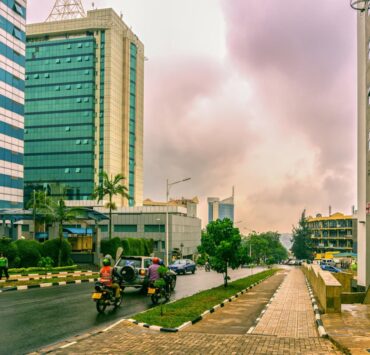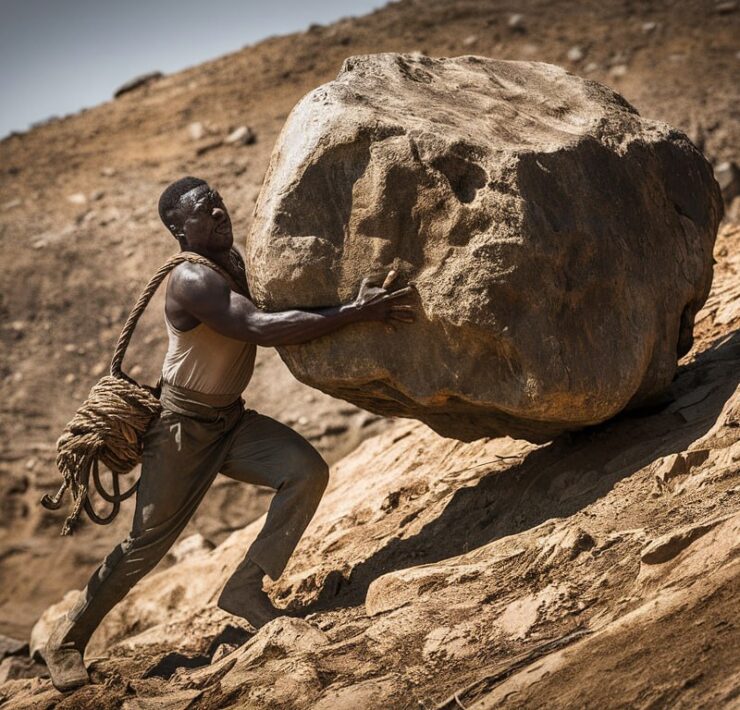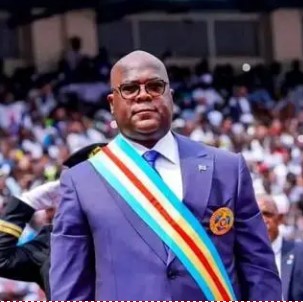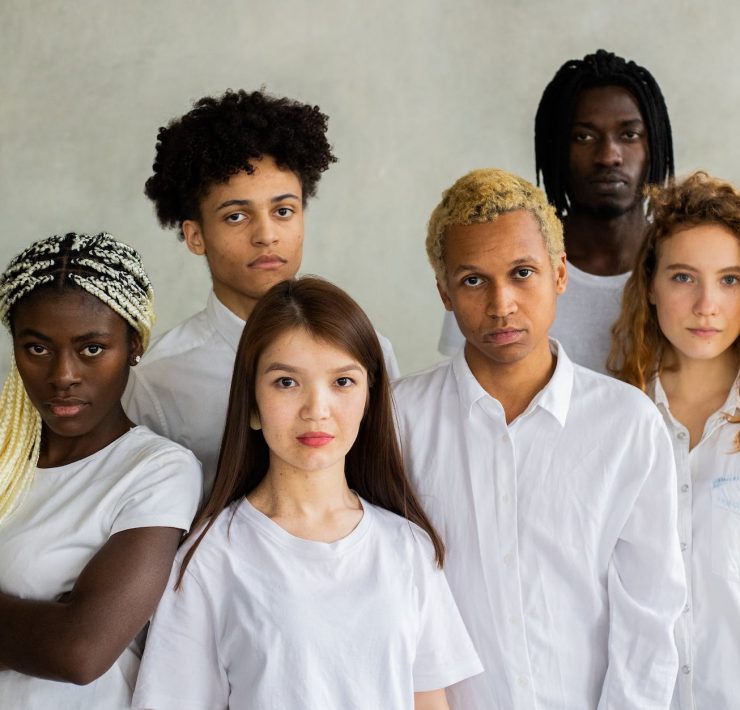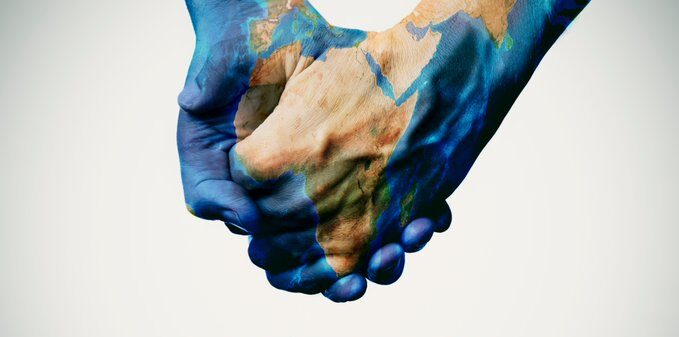
Samuel Phillips is a writer, graphic designer, photographer, songwriter, singer…
Read Next
Africa stands at a crucial crossroads even as we watch the global shifts that are going on in various aspects and sectors of our human existence. Africa is rich in natural resources, cultural diversity, and untapped potential, the continent holds the promise of becoming a global powerhouse. However, persistent challenges such as political instability, economic inequality, and external exploitation continue to hamper progress. One of the most powerful and enduring solutions for Africa’s advancement lies in unity. As the visionary Kwame Nkrumah, the first President of Ghana, once proclaimed, “It is clear that we must find an African solution to our problems, and that this can only be found in African unity.” His words resonate today as a reminder of the importance of solidarity in overcoming the continent’s challenges and transforming its future.
The Historical Call for Unity
The idea of African unity is not new. From the early days of Africa’s independence movements, leaders like Kwame Nkrumah, Julius Nyerere, Haile Selassie, and even the leaders who came after them like Thomas Sankara recognized that the fragmentation of the continent into small, often economically and politically weak states would leave Africa vulnerable to neo-colonialism and external manipulation. Nkrumah, in particular, was a tireless advocate for a united Africa, urging for the establishment of a United States of Africa to consolidate the continent’s resources, political will, and intellectual capital.
In his famous speech during the founding of the Organization of African Unity (OAU) in 1963, Nkrumah passionately argued, “The forces that unite us are intrinsic and greater than the superimposed influences that keep us apart.” His vision was one of a pan-African movement that would not only end colonial rule but also lead to the creation of a self-reliant, strong Africa capable of competing on the global stage.
Why Unity is Crucial for Africa’s Progress
Despite the end of formal colonialism, Africa remains divided, both politically and economically. Ethnic divisions, nationalistic rivalries, and external influence continue to create friction between African nations. This fragmentation has contributed to issues such as civil wars, poor governance, weak economies, insecurity, and uneven development across the continent. The lack of coordinated efforts between African nations makes it difficult to tackle common challenges such as climate change, poverty, and infrastructure development. The question remains; is African unity really that difficult to achieve?
A united Africa would have the following powerful advantages:
1. Economic Strength: Unity would enable Africa to create larger, integrated markets, reducing trade barriers and encouraging intra-African commerce. The establishment of the African Continental Free Trade Area (AfCFTA) is a promising step toward this vision, as it aims to create a single market for goods and services across the continent. With over 1.3 billion people and a combined GDP of more than $3 trillion, this could lead to unprecedented economic growth, job creation, and industrialization.
2. Political Influence: A unified Africa would have a stronger voice on the global stage. Currently, individual African nations often lack the geopolitical influence to advocate effectively for their interests in international forums. A cohesive continental body would be better positioned to negotiate trade agreements, influence global climate policies, and demand reforms in global governance structures such as the United Nations and World Trade Organization.
3. Peace and Security: Kwame Nkrumah also emphasized that unity would bring about stability and peace. Africa’s history of conflict, from the Rwandan genocide to the ongoing turmoil in places like the Sahel region and South Sudan, is often exacerbated by external meddling and internal disunity. By pooling security resources, intelligence, and diplomatic efforts, African nations could more effectively prevent and resolve conflicts. This unity would also diminish external powers’ ability to exploit divisions for their own gain.
4. Cultural and Social Renaissance: Africa is home to a rich tapestry of cultures, languages, and traditions. Unity would not mean homogenization, but rather the celebration and integration of these diverse identities into a collective African identity. A pan-African cultural revival, which includes education, art, and media, would strengthen a sense of belonging and purpose among Africans, fostering pride in their shared heritage and aspirations for the future.
Kwame Nkrumah’s Vision of African Unity
Kwame Nkrumah’s vision for Africa was rooted in a profound belief that the continent’s future depended on its ability to unite. He often warned against the dangers of disunity, stating, “Divided we are weak; united, Africa could become one of the greatest forces for good in the world.” He believed that only through political and economic integration could Africa harness its resources for the benefit of all its people.
Nkrumah’s advocacy for African unity went beyond rhetoric; he called for practical steps, including:
• Pan-African institutions to coordinate economic planning, scientific research, and defense.
• A common African currency and a central bank to regulate monetary policy.
• The creation of a continental army to defend Africa from external threats.
While some of these ideas have yet to be realized, their relevance has only grown in an increasingly interconnected and competitive world.
The Way Forward for African Unity
In today’s globalized economy, Africa has an opportunity to leverage its vast resources, both human and material, to become a leading global player. However, achieving this potential requires a concerted effort toward continental integration. The establishment of the African Union (AU) and the AfCFTA are encouraging signs that the dream of African unity is still alive. But much more remains to be done.
Here are some critical steps that can pave the way forward for African unity:
1. Strengthening Regional Integration: Africa can build unity from the ground up by promoting cooperation among regional economic communities (RECs) like the Economic Community of West African States (ECOWAS), Southern African Development Community (SADC), and East African Community (EAC). These regional blocs can serve as building blocks for a fully integrated continent.
2. Investing in Pan-African Infrastructure: Africa’s development is hindered by a lack of connectivity between countries. Investments in cross-border infrastructure projects, such as transportation networks, energy grids, and digital infrastructure, will facilitate trade and cooperation.
3. Promoting African-Led Solutions: African unity should not be about mimicking Western or external models of development. Instead, it must be about finding solutions that are tailored to the continent’s unique context. This involves promoting indigenous knowledge systems, supporting African entrepreneurship, and encouraging investment in sectors like agriculture, technology, and renewable energy.
4. Cultivating a Pan-African Identity: Education and media play a critical role in fostering a sense of African unity. Schools and universities should emphasize African history, languages, and values, while media platforms should showcase African success stories and shared challenges.
5. Open skies and a borderless Africa: It does not make sense that an African still needs a visa to visit another African country or that any African should be called a foreigner in an African country that is not his home country. Even though much of Africa was not very connected by modern transport before the coming of Europeans, Africa was one entity before the balkanization by colonialism. Also, it does not make sense that airfares within Africa are costlier than airfares going to Europe or that flights have to go outside of the continent in order to connect to another African country. Why can we not have open skies that allow easy connection between African countries? For example, a couple of weeks ago, I called a courier service to ask about sending a book from Nairobi to Goma in DRC. I was told it would cost me 17,000 Kenyan Shillings. I was like “What are you talking about”. The book itself costs 2,000 Kenyan Shillings. I could not believe my ears. Then I asked the lady why the high price and she responded and said that flights don’t go directly to Goma DRC from Nairobi but that flights go to South Africa and then from there to DRC. That made no sense at all if you understand that there is only one country between Kenya and the DRC. But this is the madness that we are allowing in Africa and then we speak of economic growth. Imagine what open skies and a borderless Africa will do for our collective growth as a people. Growth is not magic, it’s a result of good planning and execution.
Is unity in Africa really that difficult to achieve or is it that some benefit from the disunity of Africa? We must look into all these things and make the changes required.
Conclusion
Kwame Nkrumah’s vision of a united Africa remains one of the most powerful ideas for the continent’s transformation. As he rightly noted, “The independence of Ghana is meaningless unless it is linked up with the total liberation of the African continent.” Today, the total liberation of Africa includes not only political independence but also economic, cultural, and social unity. Only through collective action and solidarity can Africa overcome its challenges and realize its potential as a global leader in the 21st century.
Unity is Africa’s power to change its future, and the time to act is now.
Subscribe now for updates from Msingi Afrika Magazine!
Receive notifications about new issues, products and offers.
What's Your Reaction?
 PIN IT
PIN ITSamuel Phillips is a writer, graphic designer, photographer, songwriter, singer and a lover of God. As an Afrikan content creator, he is passionate about creating a better image and positive narrative about Afrika and Afrikans. He is a true Afrikan who believes that the true potential of Afrika and Afrikans can manifest through God and accurate collaborations between Afrikans. Afrika is the land of kings, emperors, original wisdom, ancient civilizations, great men and women and not some road-side-aid-begging poor third world continent that the world finds joy in undermining.















